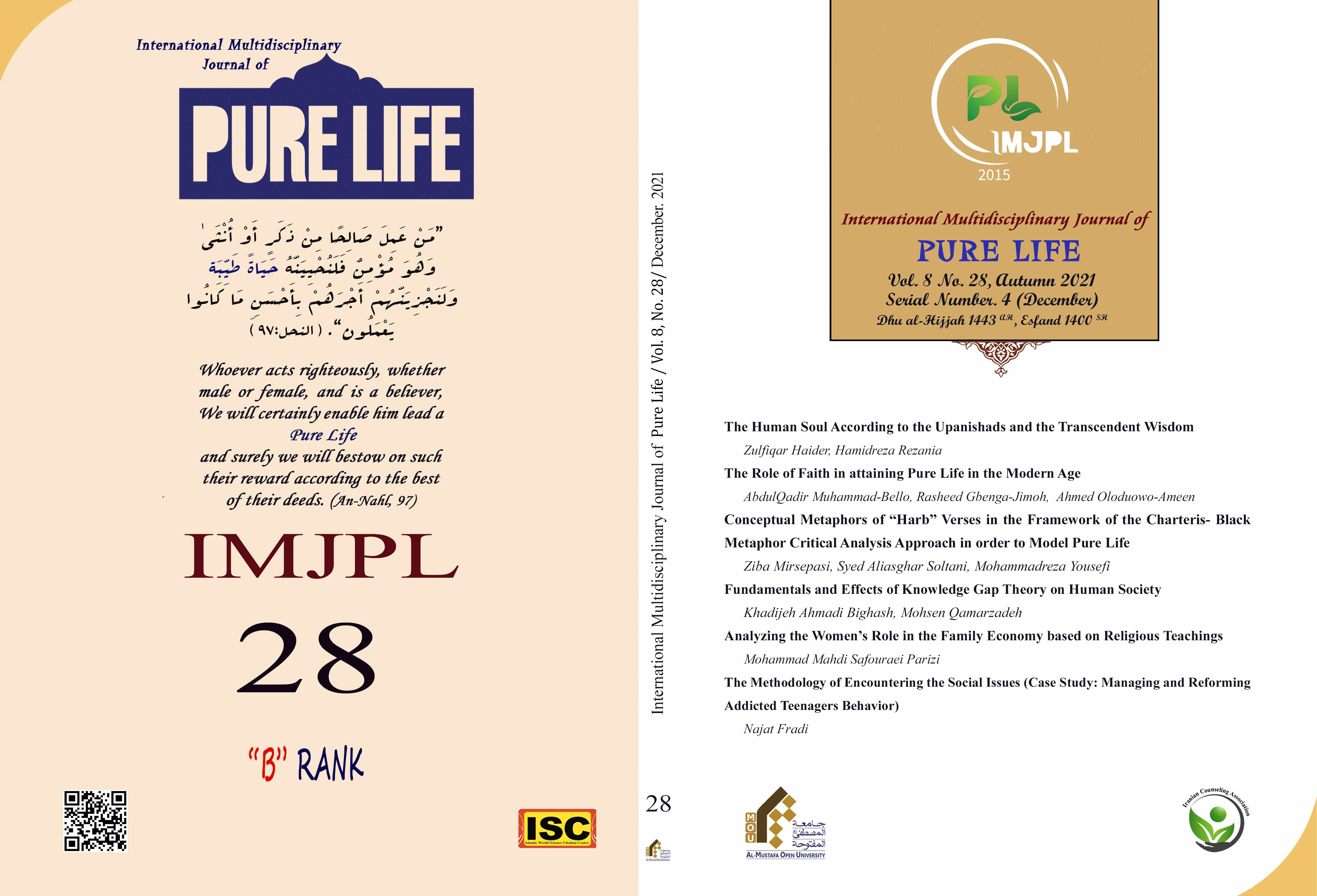Document Type : ORIGINAL RESEARCH PAPER
Authors
1 Instructor at Department of Comparative Interpretation, Faculty of Quran and Hadith, Kowsar Islamic Sciences Education Complex, Tehran, Iran (Corresponding Author)
2 Assistant Professor of Quran and Hadith. Director of the Quran and Hadith Jurisprudence Group, Faculty of Quranic and Hadith Studies, Imams Jurisprudence Center, Qom, Iran
Abstract
SUBJECT AND OBJECTIVES: Awareness gap theory is one of the theories related to the sphere of influence of mass media. The design of the awareness gap theory initially included a simple relationship between the socio-economic status of individuals and the extent of the awareness gap between different groups. This means that the lower the socio-economic status of individuals, the less access they have to information, and vice versa; but later, it was not only the socio-economic base that determined people's access to information, but also their level of awareness of important issues related to social groups can be influenced by other variables such as people's interest or need for information.
METHOD AND FINDING: A descriptive-analytical study of this issue shows that the gap knowledge theory does not mean the lower class is unaware of the available data and information, but claims that the growth of knowledge is relatively higher among high-ranking groups, and this information gap It will get deeper and deeper day by day.
CONCLUSION: The basis of this theory is that the mass communication strengthens or increases the existing information inequalities. This research seeks to answer the question of what the theory of knowledge gap is and how its effects can be influenced by information inequalities.
Keywords
Main Subjects
- Razaghi, Afshin (2002). Theories of Mass Communication. Tehran: Peykan Publications.
- Surin, Werner. and James Tancard (2007). Communication Theories. Translated by Alireza Dehghan. Tehran: University of Tehran Press.
- McQuail, Dennis (2006). Theory of Mass Communication. Translated by Parviz Ejlali. Tehran: Office of Media Studies and Development.
- Mehdizadeh, Syed Mohammad (2010). Media Theories: Common Thoughts and Critical Perspectives. Tehran: Hamshahri Publishing.
- Zareian, Davood (1996). Injection Theory; Basics of Mass Communication. Tehran: Media and Communication Research Center.
- Bahramian, Shafi (2009). Communication and its Theories. Tehran: Samat Publications.
- Mohseni, Manouchehr (2000). A Survey of Awareness, Attitudes and Socio-Cultural Behaviors in Iran. Tehran: Secretariat of the Cultural Council.

